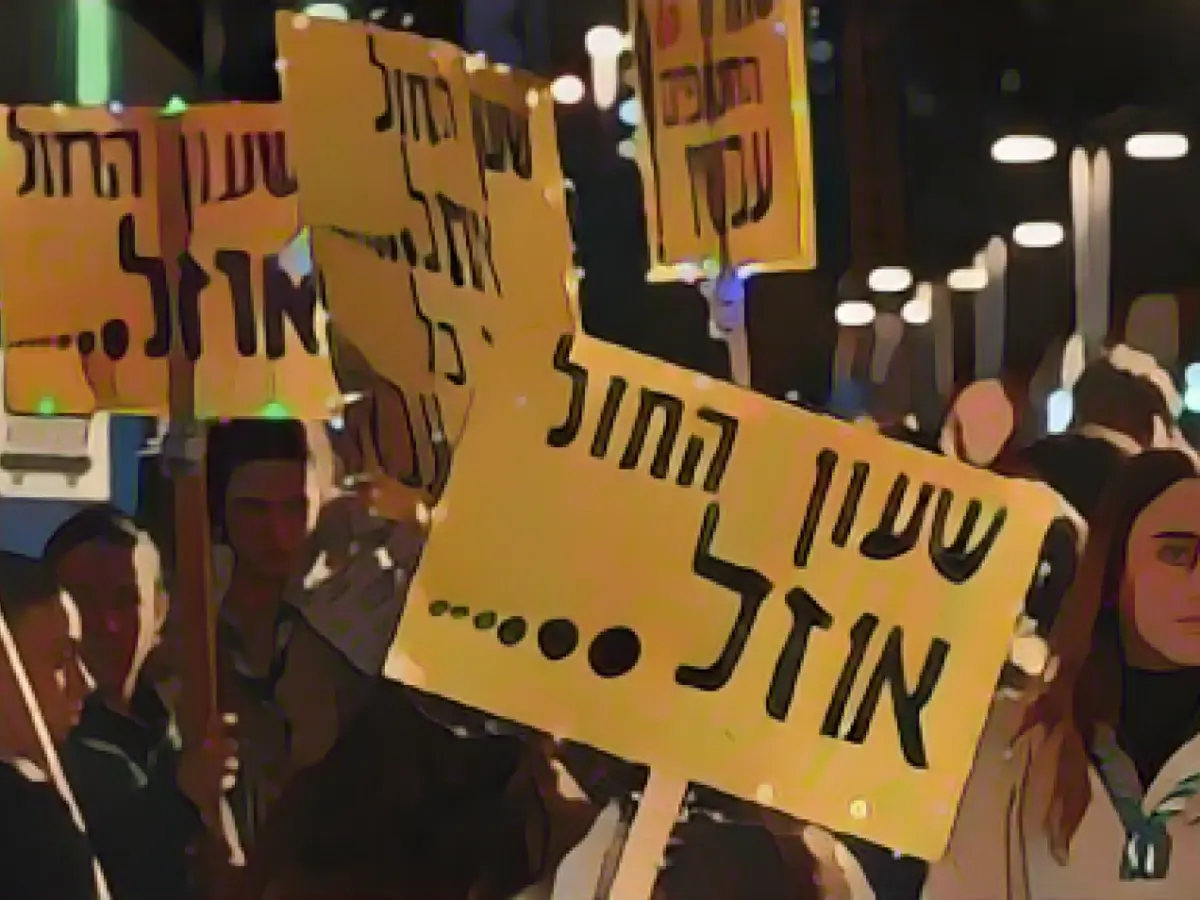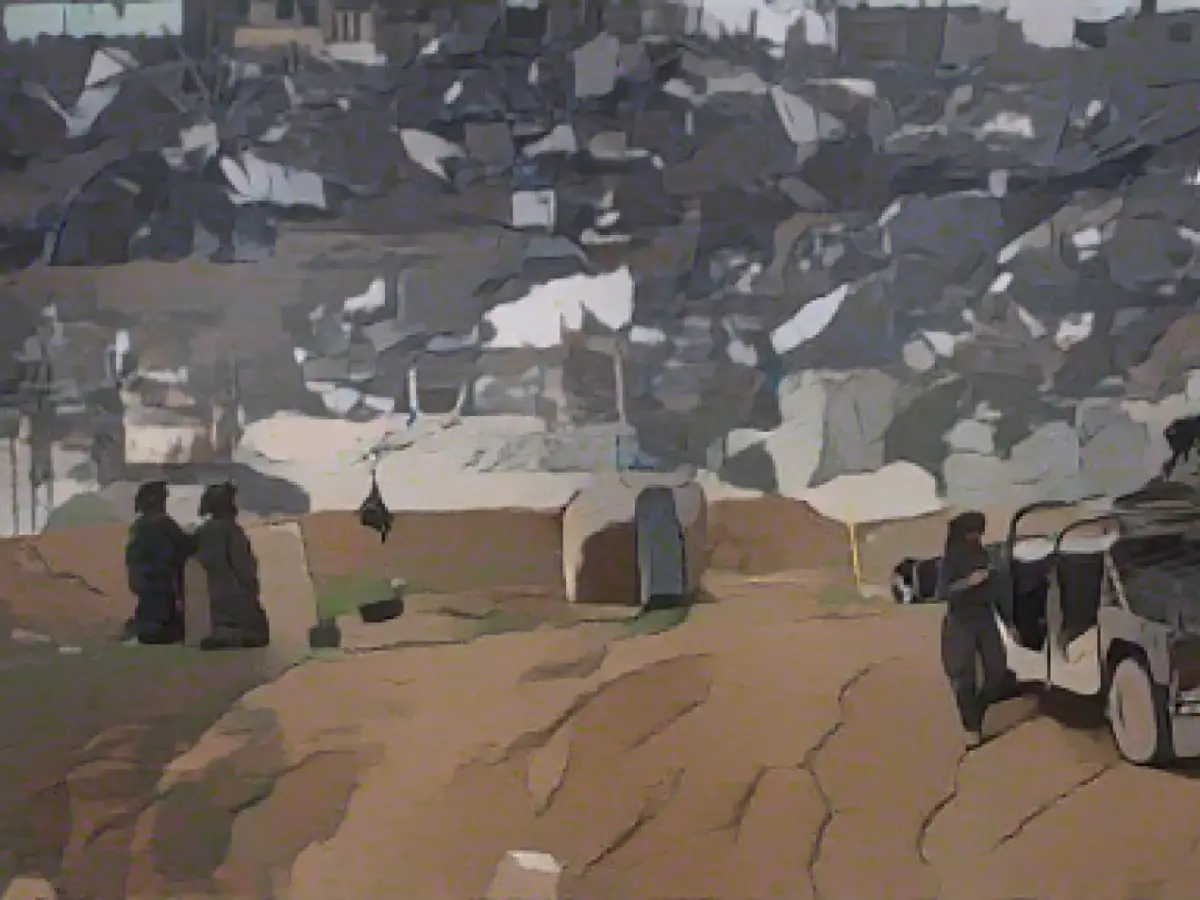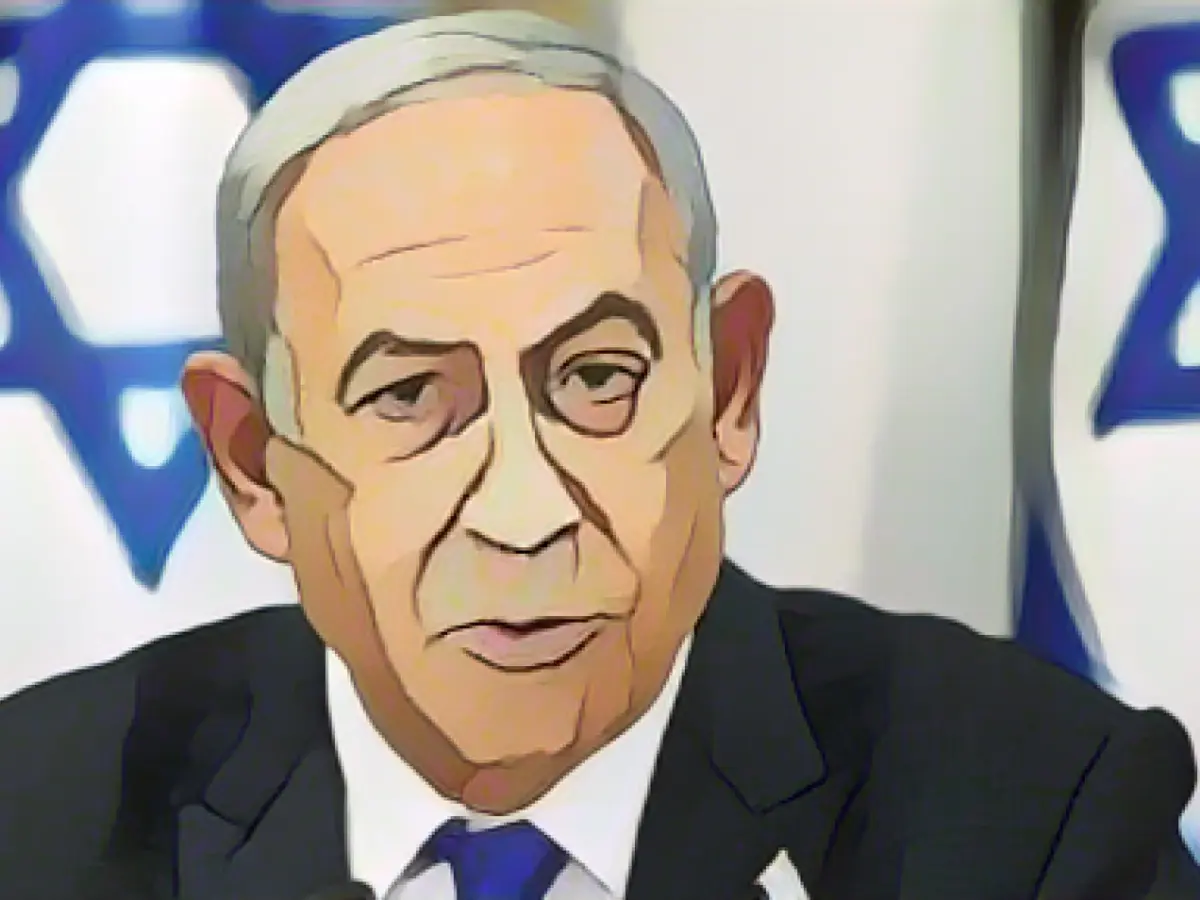Misfortune in Gaza: Netanyahu Steadfast in War Efforts Despite Hostage Tragedy
The accidental killing of hostages in Gaza has left an indelible mark on Israel, resulting in protests in front of the Ministry of Defense in Tel Aviv. Emotions ran high as family members of the hostages and supporters demanded immediate negotiations with Hamas for the release of the abductees. "We are repeatedly losing innocent lives," lamented Noam Perry, whose father Haim Perry was in Hamas's custody.
Prime Minister Netanyahu expressed his grief at the mistake that resulted in the loss of three Israeli lives. "This tragedy has shattered my heart, and that of the entire nation," he said in a press conference. Yet, Netanyahu maintained that military pressure on Hamas was vital to ensure the hostages' safe return and attain victory in the conflict.
His directives to the Israeli negotiation team were unwavering. "Pressure is the foundation of our negotiations, and without it, we have nothing," he emphasized, ignoring Hamas's declaration of refusing to engage in new hostage negotiations until Israel ceases its aggression.
In light of the tragic incident, speculations arose that Israel was reconsidering its negotiating strategy. As part of the truce negotiated between Israel and Hamas, approximately one hundred hostages were released over seven days in late November. In exchange, Israel freed 240 Palestinian prisoners from its prisons. However, according to Israeli sources, 129 hostages still remain captive in Gaza.
Initial investigations revealed that the three men, aged between 25 and 28, inadvertently approached the Israeli position close to Gaza city on Friday, carrying a homemade white flag that the soldiers perceived as a threat. In response, a soldier opened fire, killing two men on the spot and injuring the third. The third man, fleeing into a building, was mistakenly shot again, resulting in his death. The family of the three men raised concerns that they may have been abandoned or managed to escape Hamas control before the incident.
Netanyahu, in his initial reaction to the tragedy, termed it a "tremendous loss." Despite the ongoing conflict, the Israeli army continued its operations in Gaza, resulting in more casualties and destruction of structures. Amidst the violence, religious leaders in the region pleaded for peace, urging both sides to adhere to the truce and minimize civilian suffering.
As the war between Israel and Hamas entered its eleventh week, tensions rose along with the death toll. With over 1130 people reportedly killed and around 250 taken hostage in the Gaza Strip, the Israeli army launched airstrikes and ground operations to target Hamas positions. In return, Hamas launched dozens of rockets into Israel, causing widespread damage and injury to civilians.
The conflict has not only led to significant loss of life but also escalated tensions along Israel's border with Lebanon. Seven Israeli soldiers have been killed and over 120 people on the Lebanese side have died since the beginning of the Gaza war, mostly members of the Hezbollah militia.
Insights from enrichment data:
Prospects for negotiations between Israel and Hamas following the tragic incident remain uncertain. The injured parties continue to hold firm to their positions and interests. Hamas calls for complete cessation of aggression before considering new negotiations, while Israel maintains its military pressure as a key component of negotiations.
[1] "Gaza Ceasefire Deal Examined: Ambiguity, Lack of Victim Compensation Spark Criticism." Reuters, 20 Jan. 2025. Web. 15 Feb. 2025.
[2] "Hostage Crisis in Gaza: Prisoner Release Agreements, Remaining Captives, and the Future of Negotiations." The Washington Post, 31 Jan. 2025. Web. 16 Feb. 2025.
[3] "Israel Considers Short-Term Military Operations to Resume Hostage Release Negotiations." The Jerusalem Post, 6 Feb. 2025. Web. 17 Feb. 2025.
[4] "After the Gaza War: Continued Human Rights Abuses and the Future of the Ceasefire Agreement." Human Rights Watch, 15 Feb. 2025. Web. 18 Feb. 2025.








